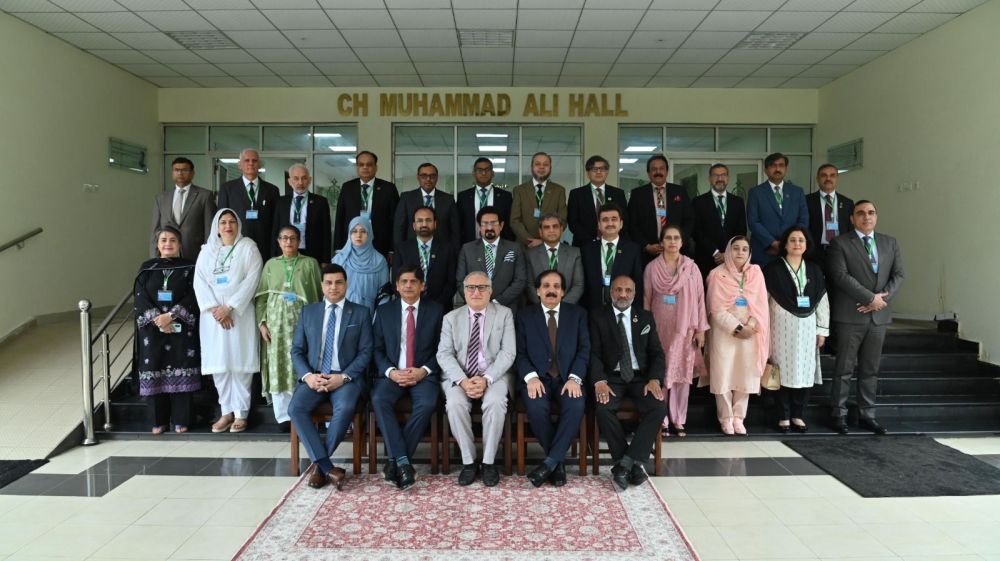Pre-Conference Roundtable on AI and Academic Integrity: Navigating Ethical Use in Education
Posted 1 year ago
As artificial intelligence (AI) rapidly reshapes the educational landscape, universities, policymakers, and educators worldwide are grappling with new questions about its ethical use and implications for academic integrity. At a pre-conference roundtable on AI and academic integrity, experts will explore the delicate balance between AI's transformative potential and the responsibility to maintain fairness and honesty in academic environments. With education systems around the globe navigating these challenges, 2nd Asia-Middle East-Africa will serve as an essential forum for discussing strategies that could pave the way for the ethical integration of AI in learning institutions.
The Promise and Peril of AI in Education
AI tools, from automated tutoring systems and grading software to advanced language models, are increasingly woven into educational systems. They offer students enhanced accessibility to learning resources, personalized content, and the chance to interact with technology in ways that were unimaginable just a decade ago. These technologies have the potential to revolutionize education by making high-quality, tailored learning available to students across the world, regardless of geography or socioeconomic status.
However, the roundtable will discuss associated ethical risks. While AI can be a powerful educational tool, it also raises concerns about academic misconduct, originality, and the authenticity of student work. Students' AI-generated content for assignments or projects challenges traditional understandings of academic integrity, requiring educators to rethink what it means to submit "original" work in an age where AI can assist with every aspect of the creative process.
Global Perspectives on AI in Academia
The rise of AI in academia is a global phenomenon, transcending regional or national boundaries. Countries worldwide are approaching the ethical implications of AI with diverse strategies tailored to their cultural and regulatory contexts. This global perspective underscores the need for a unified approach to AI in education.
United States: Leading American universities are working to establish clear guidelines that define acceptable uses of AI in coursework. The U.S. approach focuses heavily on fostering awareness among students, with many institutions incorporating AI ethics into their curricula to educate students on responsible usage. Universities are also investing in technology to detect AI-generated content, reflecting a dual approach of prevention and detection.
European Union: In the EU, where digital privacy and ethics are emphasized, there is a strong push for creating standardized ethical frameworks. Universities and academic bodies are working closely with policymakers to develop guidelines that ensure AI is used responsibly while respecting individual rights. Discussions center on student consent, transparency, and accountability in AI usage, aligning with the EU's strict data protection regulations.
Asia and the Pacific: Across Asian countries, where AI adoption in education is rapidly expanding, there is a focus on integrating AI responsibly to enhance educational access, particularly in rural and underserved areas. For instance, countries like Japan and South Korea are exploring "digital honor codes" and reinforcing educational norms to discourage misuse. Many Asian universities are also investing in AI-driven tools to track originality, aligning technological use with traditional values of academic honesty.
Africa: In Africa, AI offers the potential to bridge significant educational gaps. Governments and NGOs are working to create ethical guidelines that support inclusive, AI-assisted learning. However, with infrastructure limitations, the focus is also on ensuring that AI tools are deployed equitably to avoid creating new forms of educational disparity.
Latin America: AI adoption is growing, and educational institutions leverage it to improve digital literacy and support students in remote areas. Academic integrity remains a significant concern, and institutions are striving to build a culture of responsible AI use through awareness campaigns, teacher training, and academic honor codes.
Joint Efforts: The 2nd Asia-Middle East-Africa conference will bring together collective wisdom to tackle contemporary challenges associated with AI.
Key Challenges in Ensuring Academic Integrity
The roundtable will delve into several universal challenges facing educators as they strive to maintain academic integrity in an AI-enabled world:
- Defining "Original Work": As AI can now assist in drafting essays, analyzing data, or generating code, educators must reconsider what constitutes "original" student work. There is a need for clearer demarcation between AI-assisted and fully autonomous AI work, encouraging students to disclose when they have used AI tools.
- Developing Reliable Detection Methods: Institutions globally invest in technology that differentiates between human-generated and AI-generated content. Yet, detection methods must evolve as AI technology becomes more sophisticated, creating a potential "arms race" between AI tools and detection systems.
- Educating Students on Ethical AI Use: The pre-conference will contemplate incorporating ethics and responsible AI use into curricula. By teaching students the implications of AI-generated content and the importance of originality, educators hope to create a culture of integrity that transcends mere compliance.
- Balancing Accessibility with Accountability: AI's role in making learning more accessible also introduces accountability challenges. How can institutions provide equitable access to AI tools without compromising academic standards? The 2nd Roundtable participants will discuss implementing "AI usage guidelines" to outline acceptable uses in an educational context.
Building a Global Framework for Ethical AI in Education
While each country brings its unique perspective to integrating AI in education, the roundtable should discuss the need for a unified global framework that upholds core principles of academic integrity while accommodating regional variations. Such a framework could include:
Universal Ethical Standards: Establishing shared ethical principles, such as transparency, responsibility, and respect for intellectual property, would offer a foundation for academic institutions worldwide to build upon.
Global Collaboration: The framework could ensure that all stakeholders, including universities, international academic bodies, and technology companies, have a role in shaping responsible AI use. This collaborative effort will foster a sense of shared responsibility and belonging in the global education community.
Ongoing Monitoring and Adaptation: As AI technology continues to evolve, so must our approaches to responsibly integrating it. A commitment to regularly revisiting and updating policies would ensure they remain relevant and effective.
Conclusions
The 2nd pre-conference roundtable on AI and academic integrity will mainly delve into the ethical use of AI in education, which is both a challenge and an opportunity on a global scale. From the United States to Africa, institutions are grappling with questions that will shape the future of learning and define what it means to be an ethical scholar in the digital age. By establishing a collective commitment to ethical practices, the global education community can responsibly harness AI's transformative potential, preparing students for the demands of a digital world and a future grounded in integrity and innovation.





